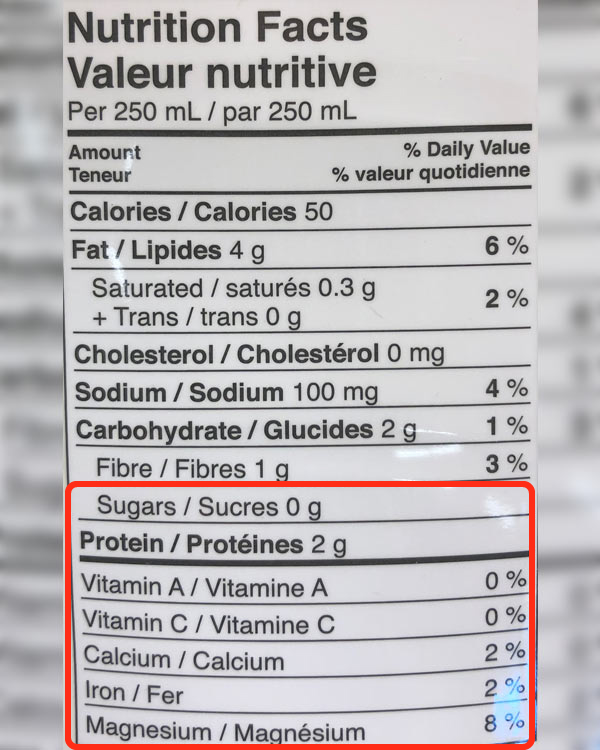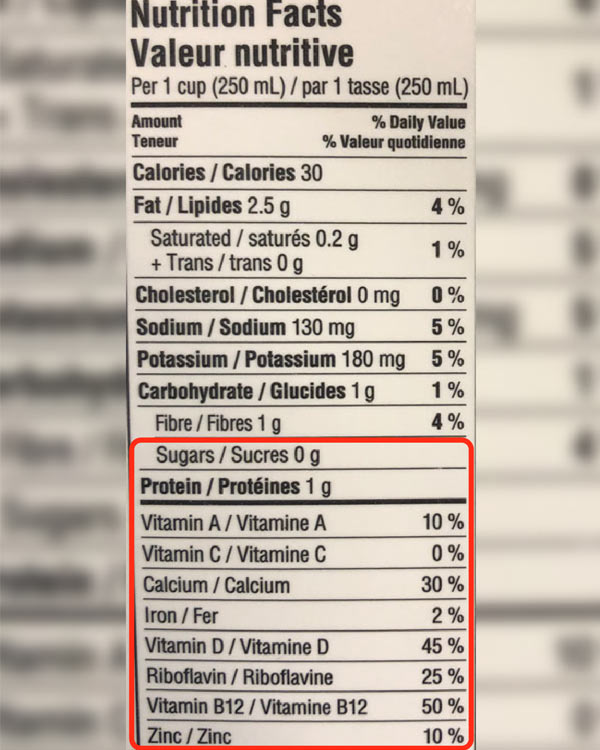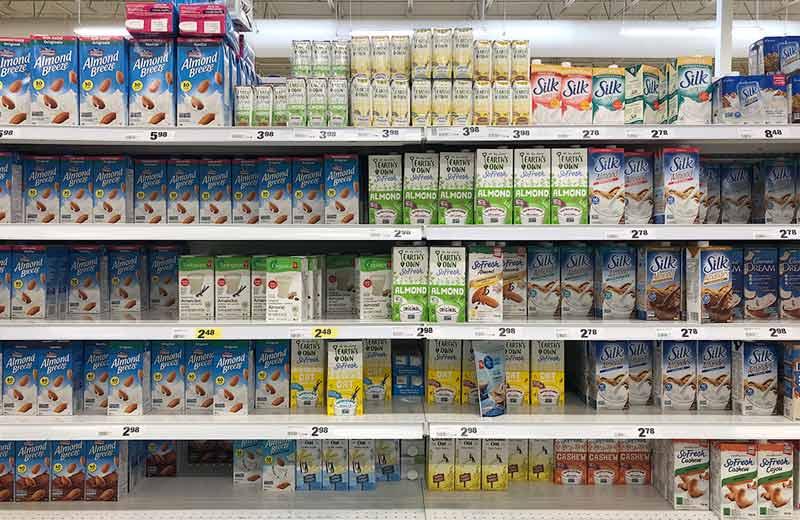When’s the last time you checked out the milk alternatives sections of your grocery store? As part of a recent student project, I looked at plant-based beverages, and the many brands and products found in stores – it’s overwhelming! But after doing some research, I’m happy to say that it all seems clearer. If you are considering these drinks, keep reading!
What is a plant-based beverage?
These drinks are made from plant sources and are often used like cow’s milk – in cereal, as a drink, or in coffee, etc. Examples include drinks made from soy, almond, pea, oat, cashew, rice, and coconut.
There are many reasons why you might try a plant-based beverage, including if you:
- Have a milk allergy or are lactose intolerant.
- Don’t enjoy the taste of milk.
- Are following a vegan or plant-based lifestyle.
Both cow’s milk and plant-based beverages can be a part of a healthy diet for adults, but plant-based beverages often do not provide as many nutrients. For this reason, they are not recommended for young children (to learn more, see Milk and young children: what you need to know). You can use the nutrition information on the product package to help you compare products.
Look at the protein content
Fortified soy beverage is recommended over other plant-based beverages due to its higher protein content (eight grams per cup – similar to cow’s milk!). Most other plant-based drinks contain as little as one gram of protein per cup. You can find information on protein content by looking at the Nutrition Facts table on the back or side of the product label.
When browsing the grocery store, I noticed a newcomer to the market that also offers eight grams of protein per cup: pea beverage. Unfortunately, this product was not fortified, which brings me to my next tip.
Choose a fortified product
When a product is fortified, it has vitamins or minerals added to it. Cow’s milk naturally contains calcium and, in Canada, must be fortified with vitamin D. In contrast, plant-based beverages are naturally low in these and many other nutrients, and they may or may not be fortified with added nutrients.
To find out if a product is fortified:
- Look for “fortified” in small print on the front of the package.
- Look at specific nutrients on the Nutrition Facts table. 5% daily value or less is a little, 15% daily value or more is a lot.
- Check the ingredient list.


I recently came across an almond beverage which boasted that it contained only “five simple ingredients.” When I looked at the back of the label, I saw this meant that it didn’t have any added vitamins or minerals! This goes to show that, when selecting drinks, we need to look past the marketing so we can find products that best fit our nutritional needs.
Consider the sugar content
You can probably guess that a plant-based beverage has sugar added to it if the label says “sweetened,” but did you know that “original” often means the same thing? If you’re looking for a plain drink with no added sugars, look for the term “unsweetened” on the label.
*Tip! If you find that unsweetened beverages are too plain, you might be interested to learn that some products add vanilla without adding sugars. Look for a beverage that says “unsweetened vanilla” for more flavour!
Final thoughts
Both milk and unsweetened fortified soy beverage are great sources of calcium, vitamin D, and protein. While other plant-based drinks are low in protein, they can be a part of your diet too, but it’s probably worth checking to see if the products are fortified.
If these drinks appeal to you, it’s also important to pick a product that tastes good to you, even if this means trying a few before you find the right one. Hopefully the plant-based beverage section of the grocery store is a little less overwhelming now that you know what to look for!
Learn More
- Recommendations for children are different than for adults. See Milk and young children: what you need to know.
- Check out dietitian Lise’s story: Canada's new food guide: where did milk go? It helps lay out where milk or plant-based beverages can fit into your diet.
- Understanding Non-Dairy Beverages helps compare nutrition information from different plant-based beverages.














Comments